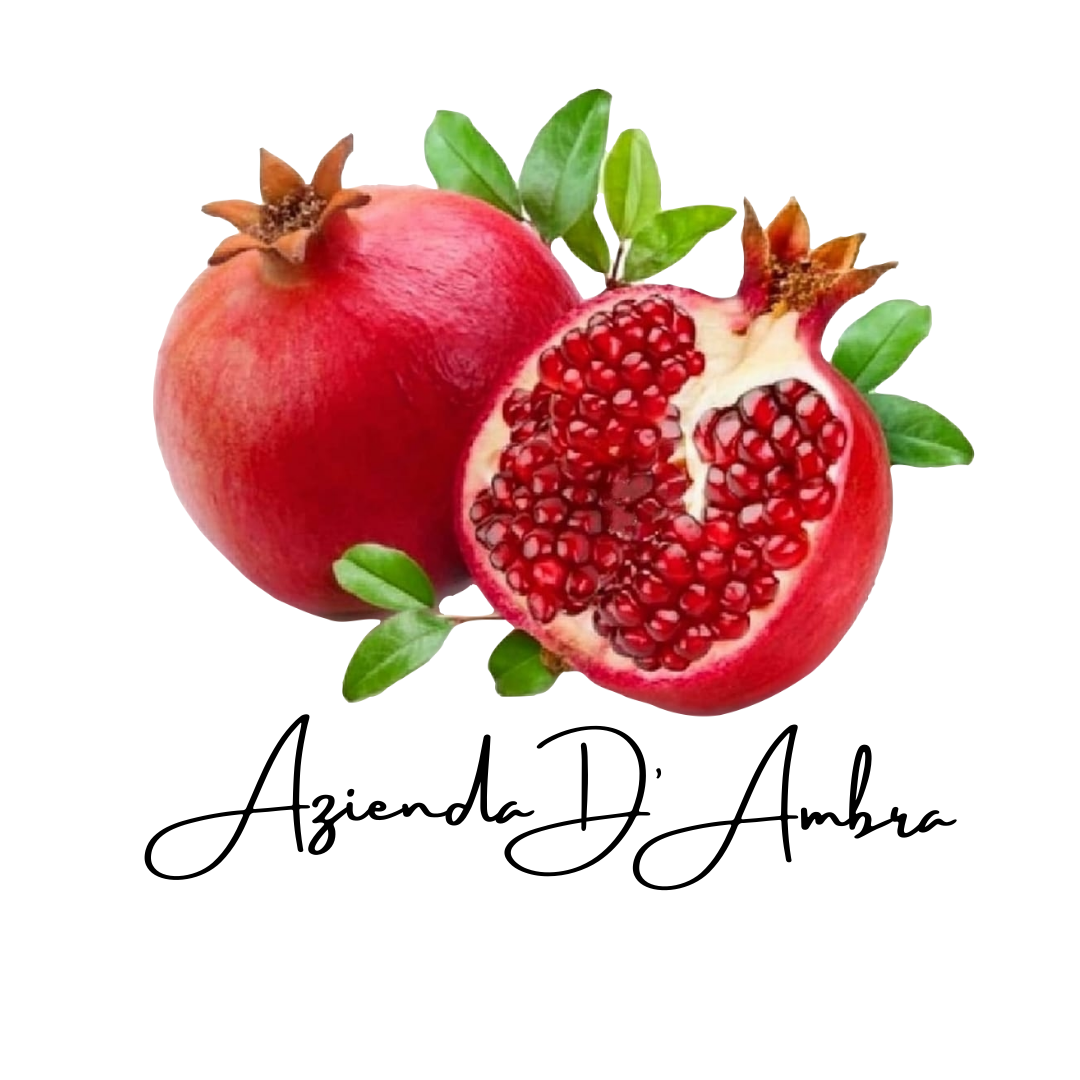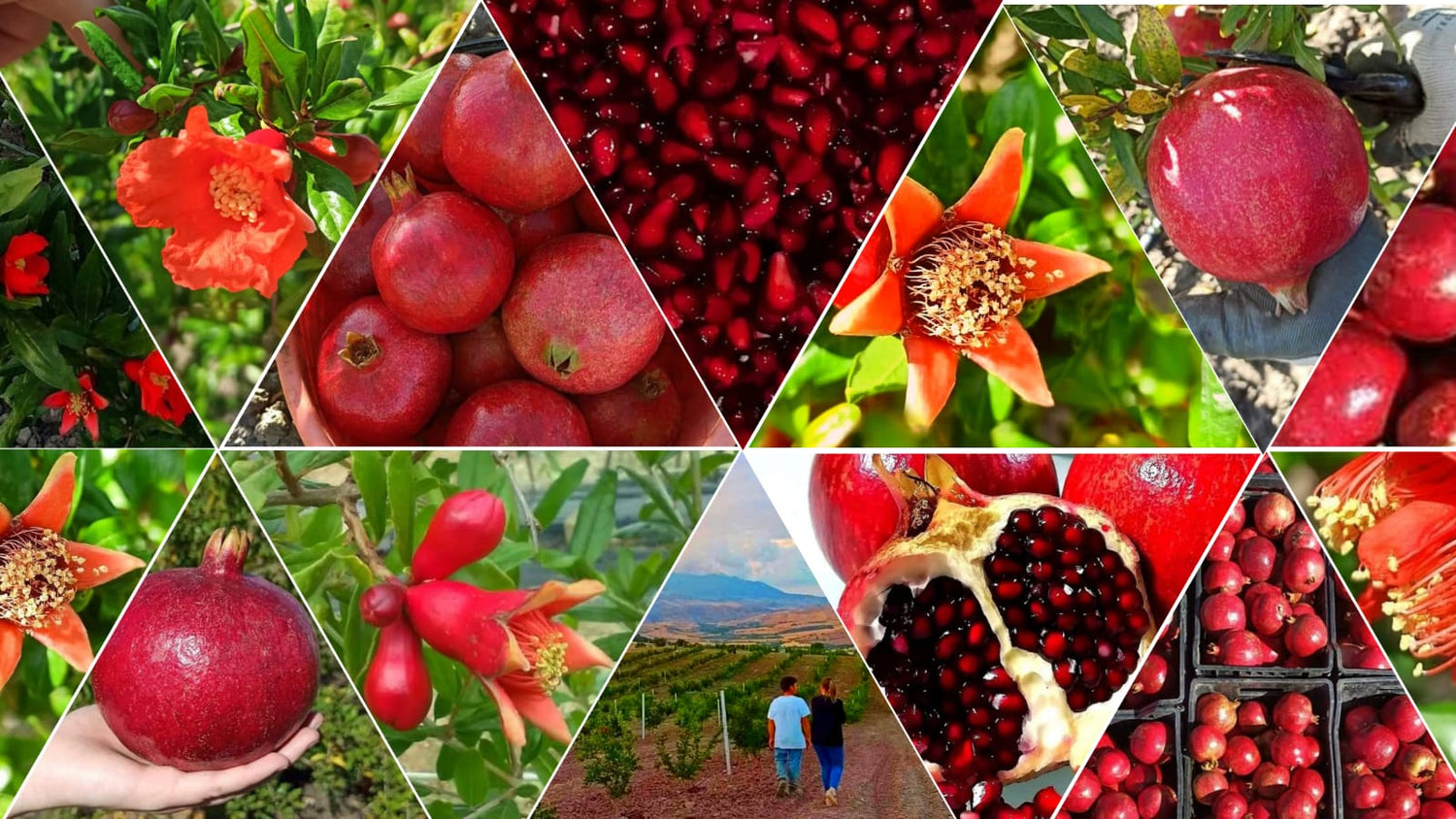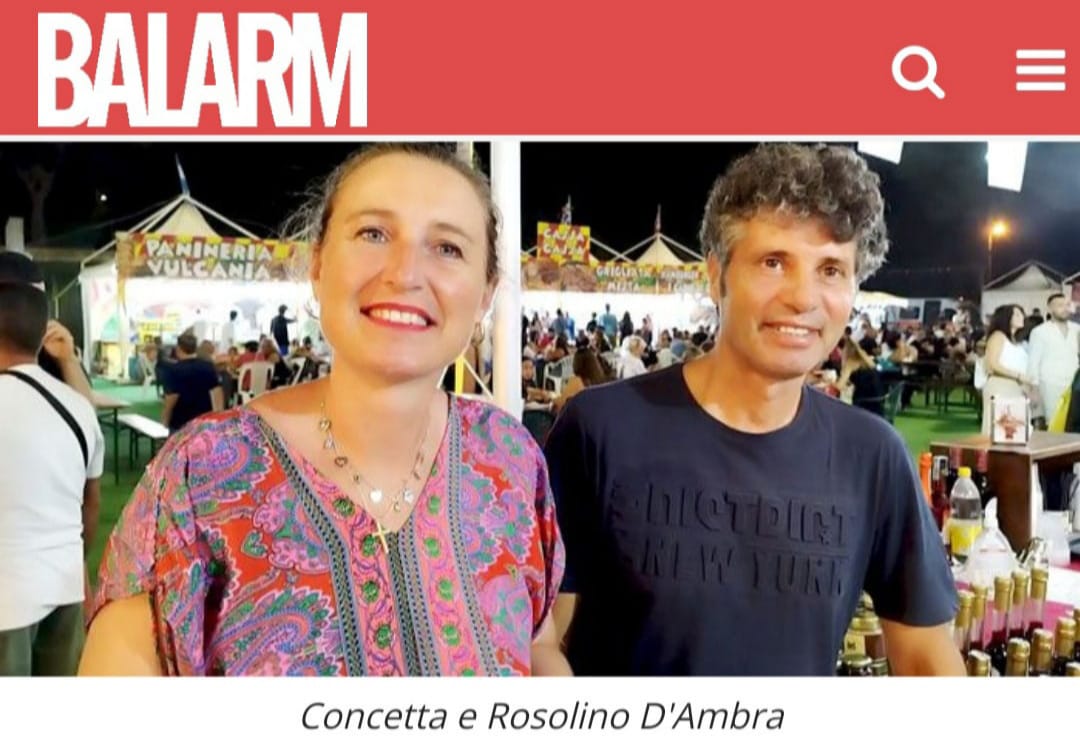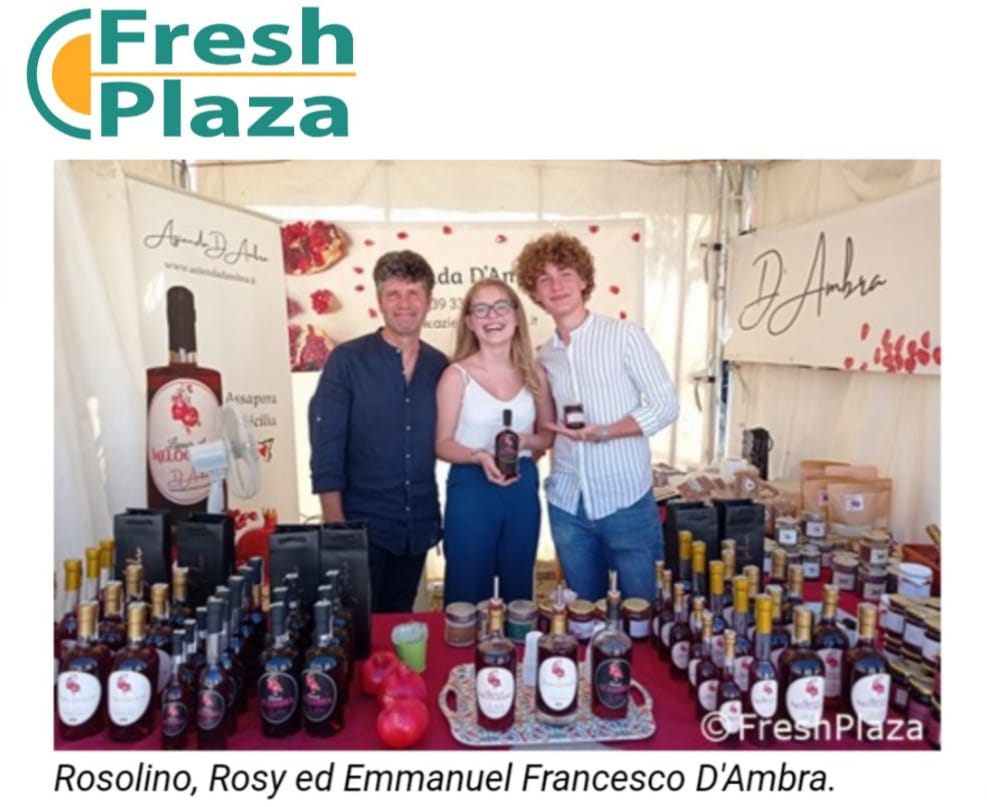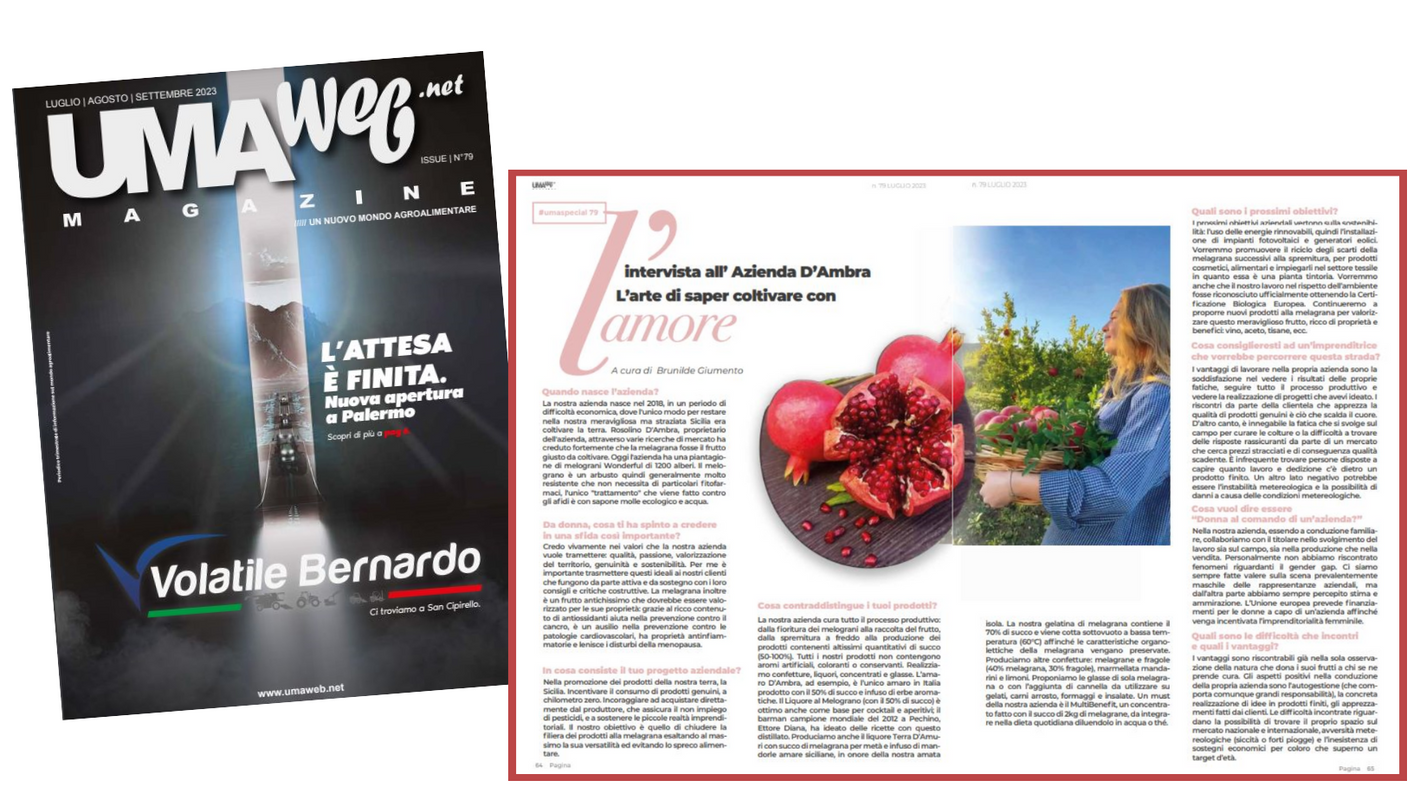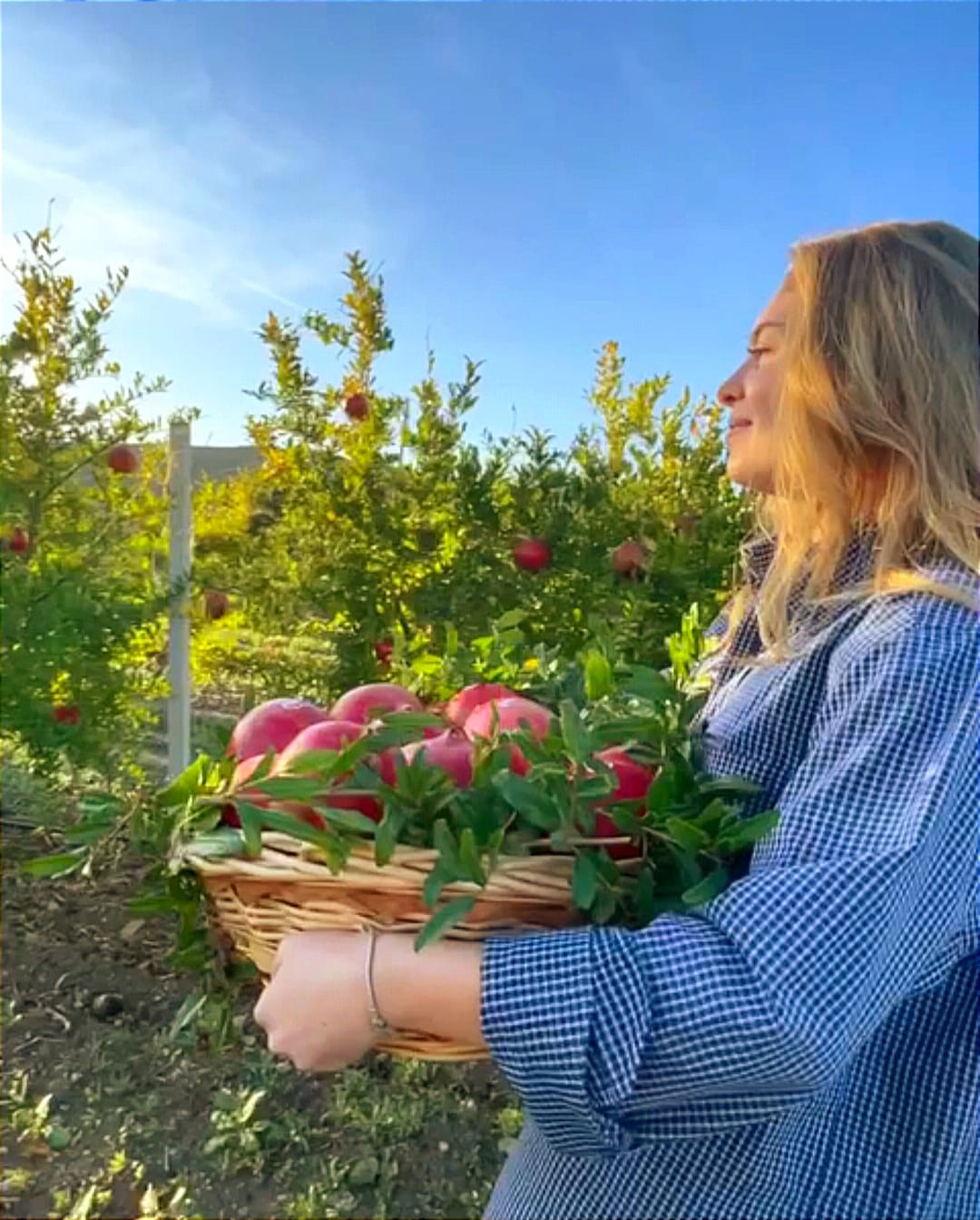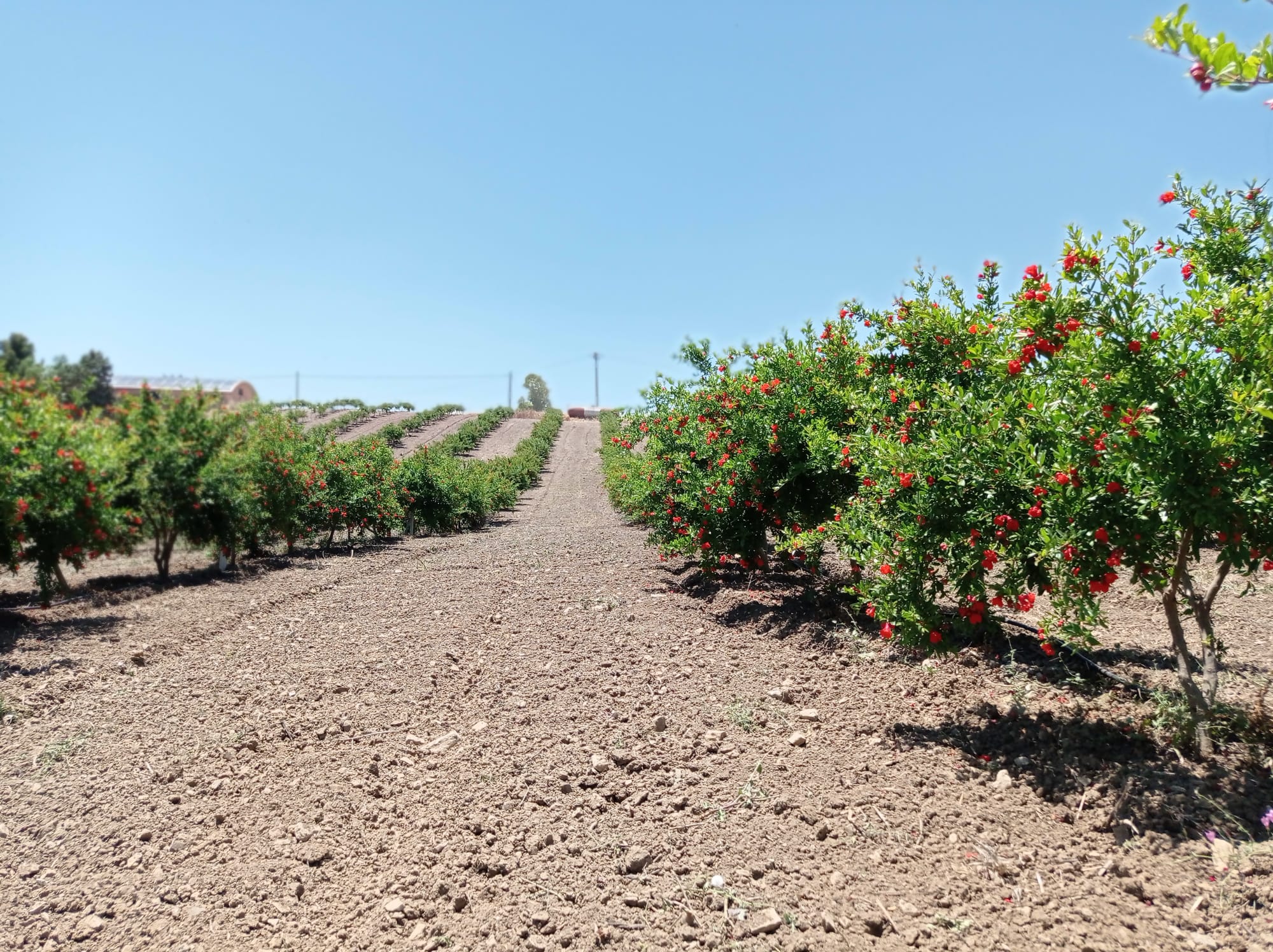The art of knowing how to cultivate with love
The D'Ambra company was born in the Torto valley, located in the Sicilian hinterland. Respecting the environment, we try to promote the genuine products of our land: Sicily.
We cultivate a sustainable plantation of pomegranates of the Wonderful quality. The pomegranate has always been the symbol of abundance and prosperity, it also has anticancer, antioxidant and vasoprotective properties.
With this wonderful fruit we produce liqueurs and jams.
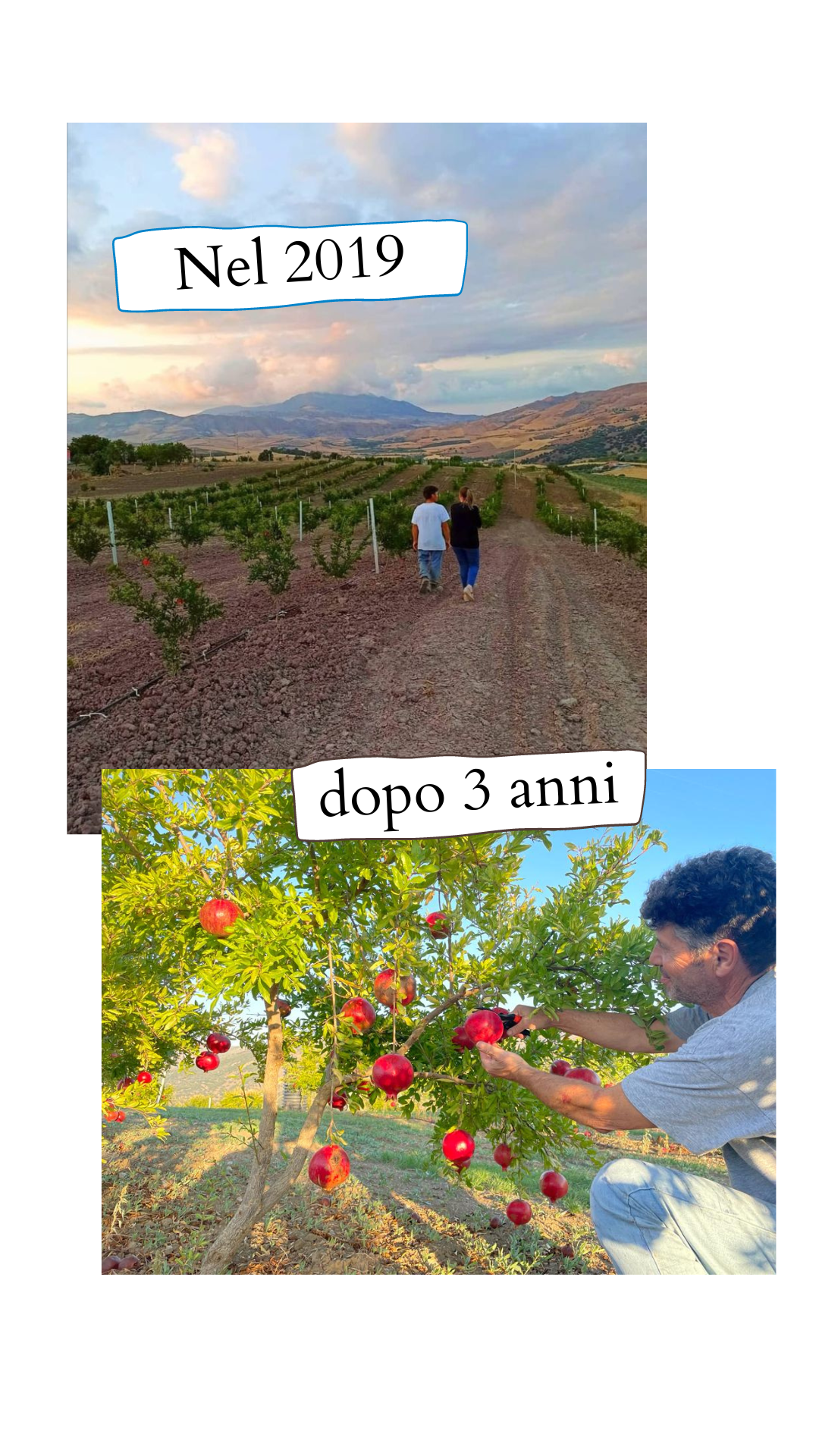
Our history
Our company was born in 2018, in a period of economic difficulty, where the only way to stay in our wonderful but tormented Sicily was to cultivate the land. Rosolino D'Ambra, owner of the company, through various market researches strongly believed that the pomegranate was the right fruit to cultivate. Today the company has a Wonderful pomegranate plantation of 1200 trees. The pomegranate is therefore generally a very resistant shrub that does not require particular pesticides, the only "treatment" that is done against aphids is with soft soap and water.
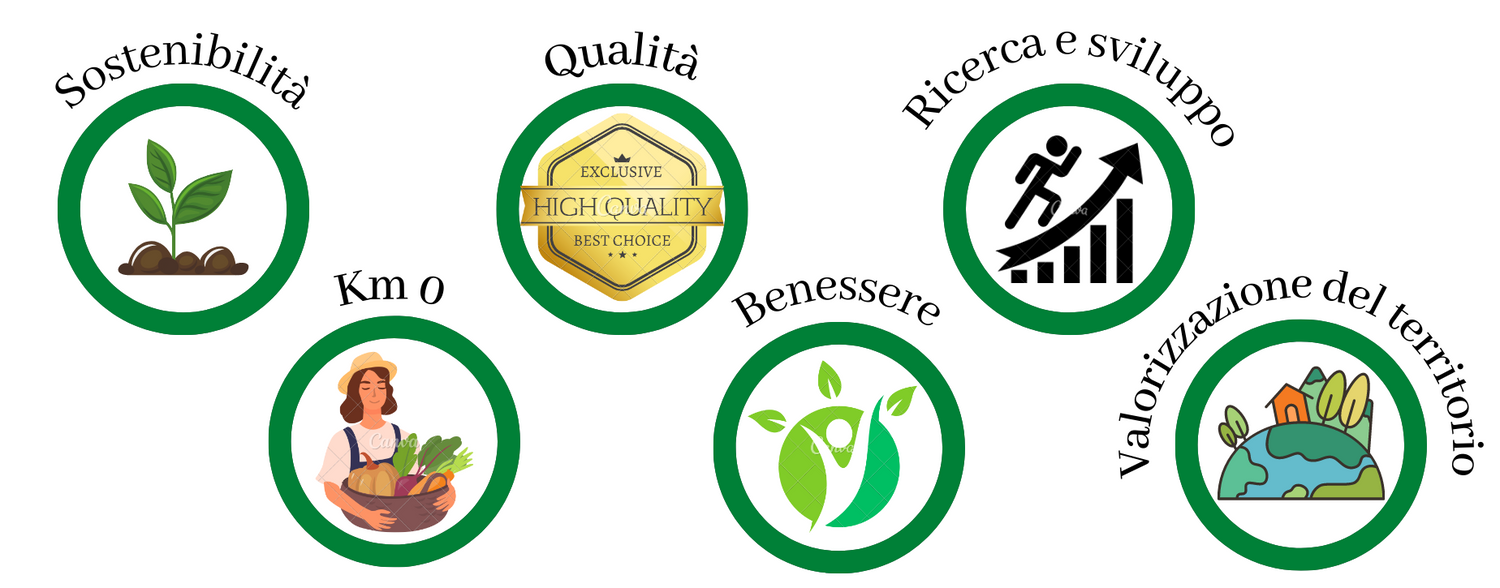
I nostri valori
About us
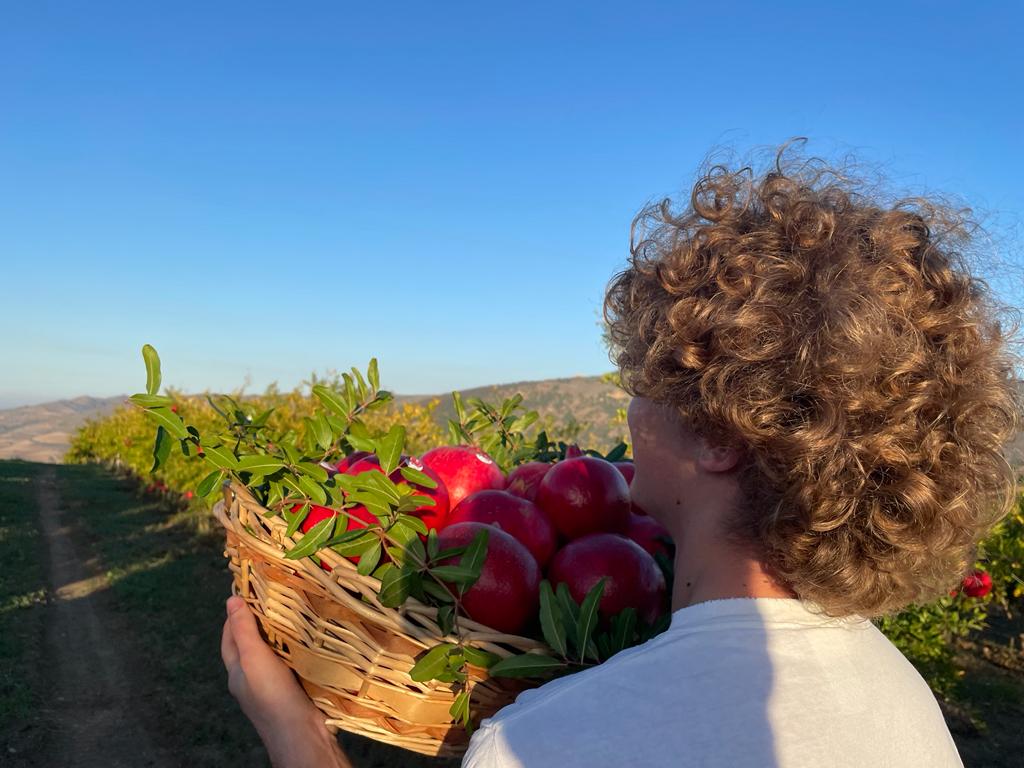
La piantagione
La nostra piantagione conta 1200 alberi di melograni Wonderful e occupano una superficie di 1,5 ettari con metodo israeliano. Sono irrigati con impianto a gocce, l'irrigazione quindi è lenta ma costante. Siamo sensibili al rispetto dell'ambiente e l'unico trattamento usato contro gli afidi è sapone molle ecologico disciolto in acqua. La raccolta delle melagrane avviene a mano, una per una. La lavorazione dei prodotti è a KM 0.
From flowering to liqueurs
-
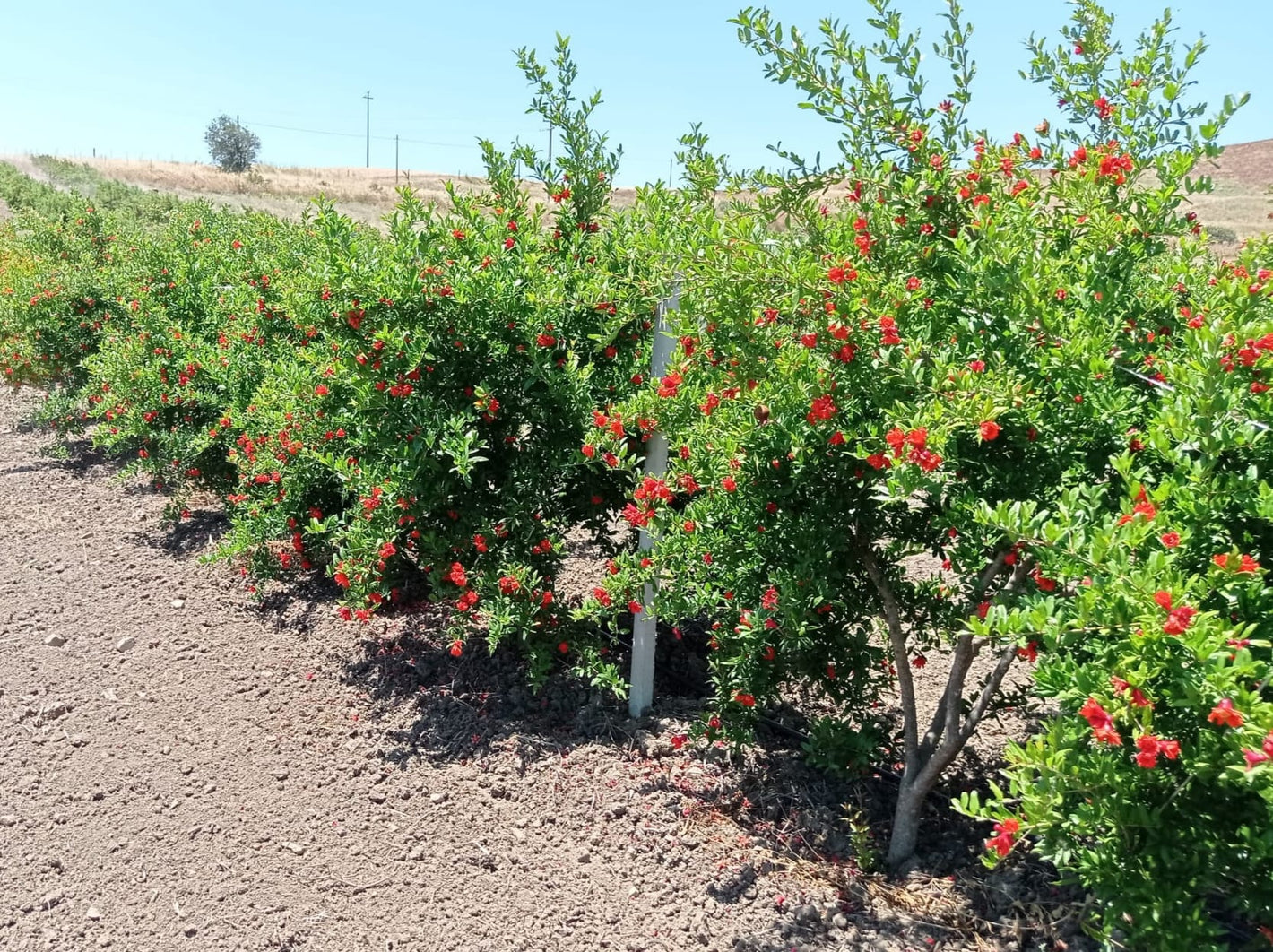
Blooming pomegranates
-
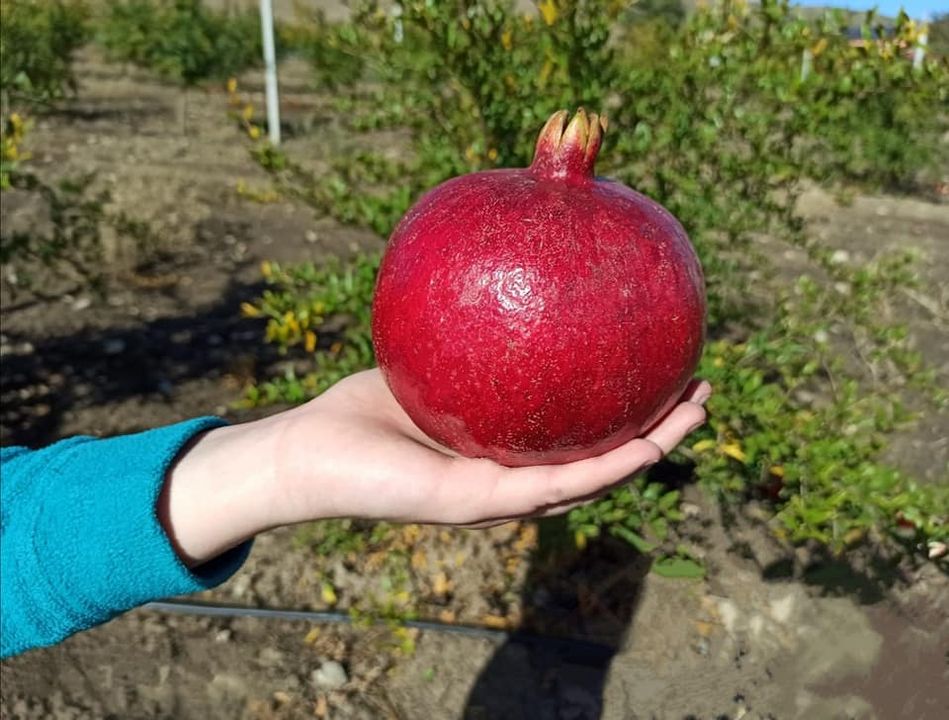
Picking of pomegranates
In the months of October and November
-
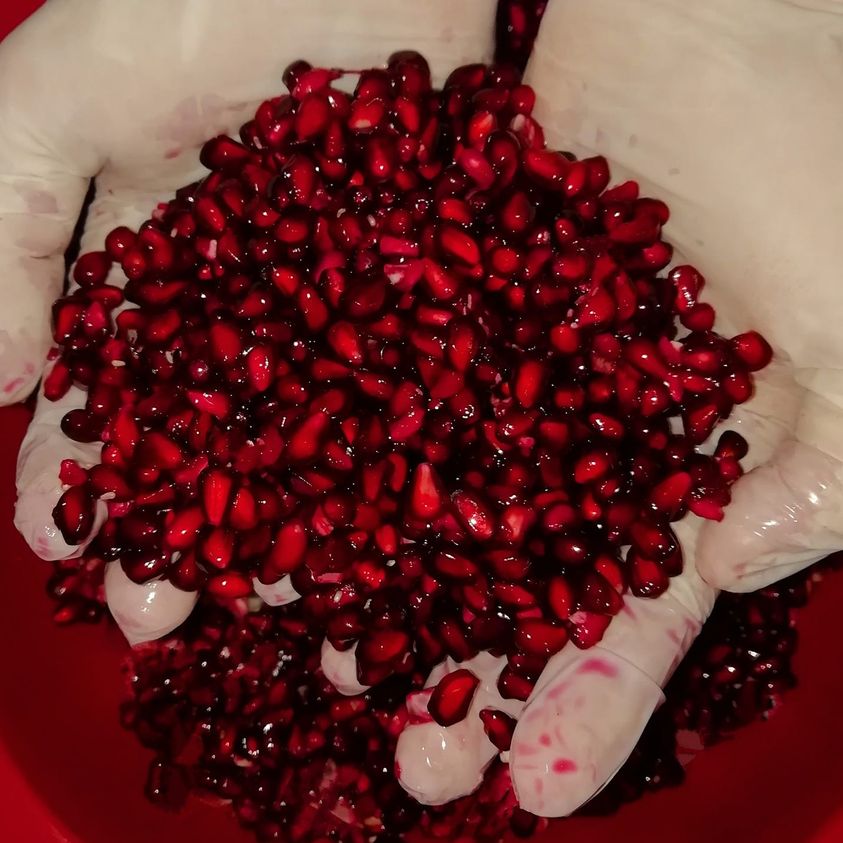
Shelling and pressing
Hand shelling of the pomegranates and cold pressing with presses.
-
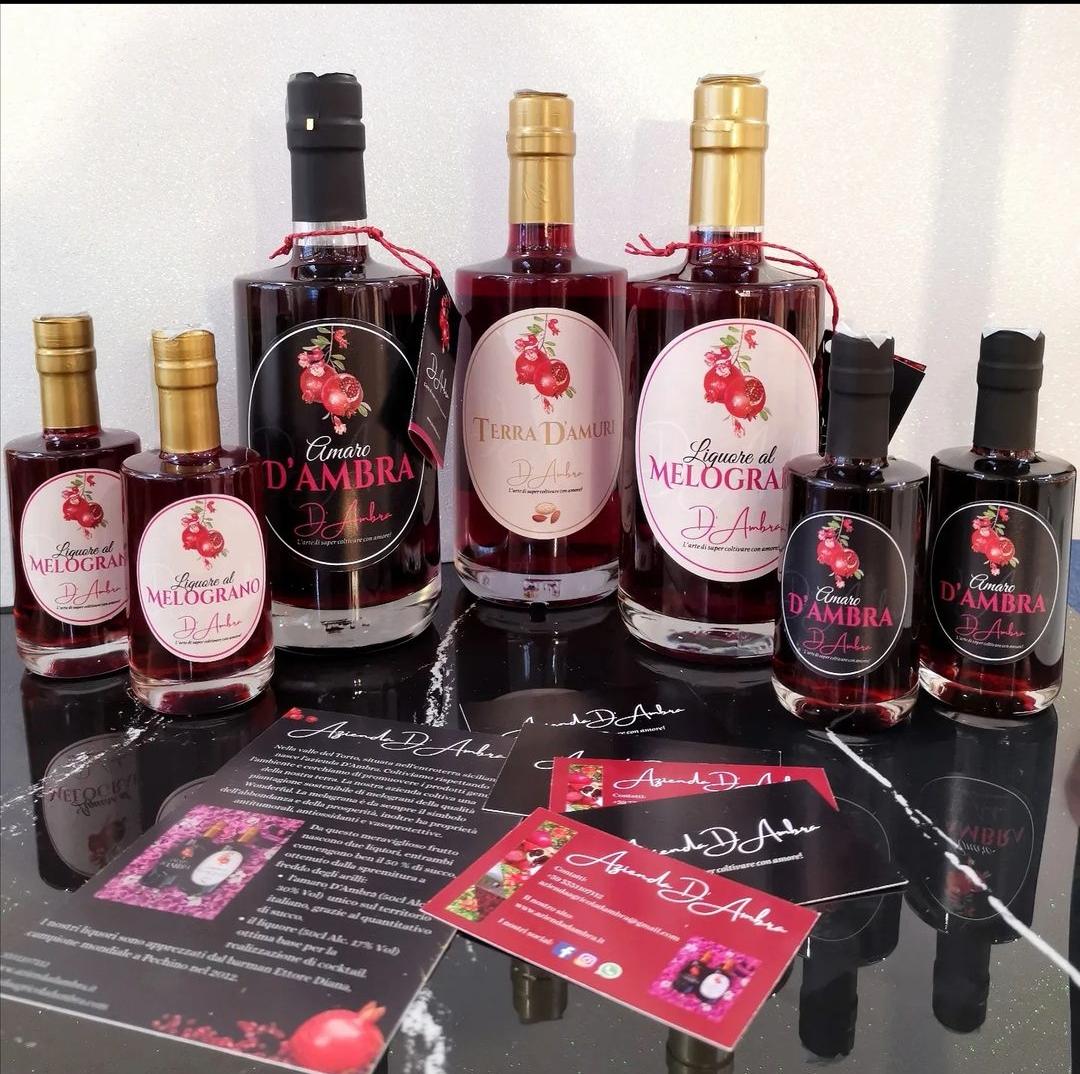
Production of liqueurs and jams
with very high quantities of juice (50/70%)
Let customers speak for us
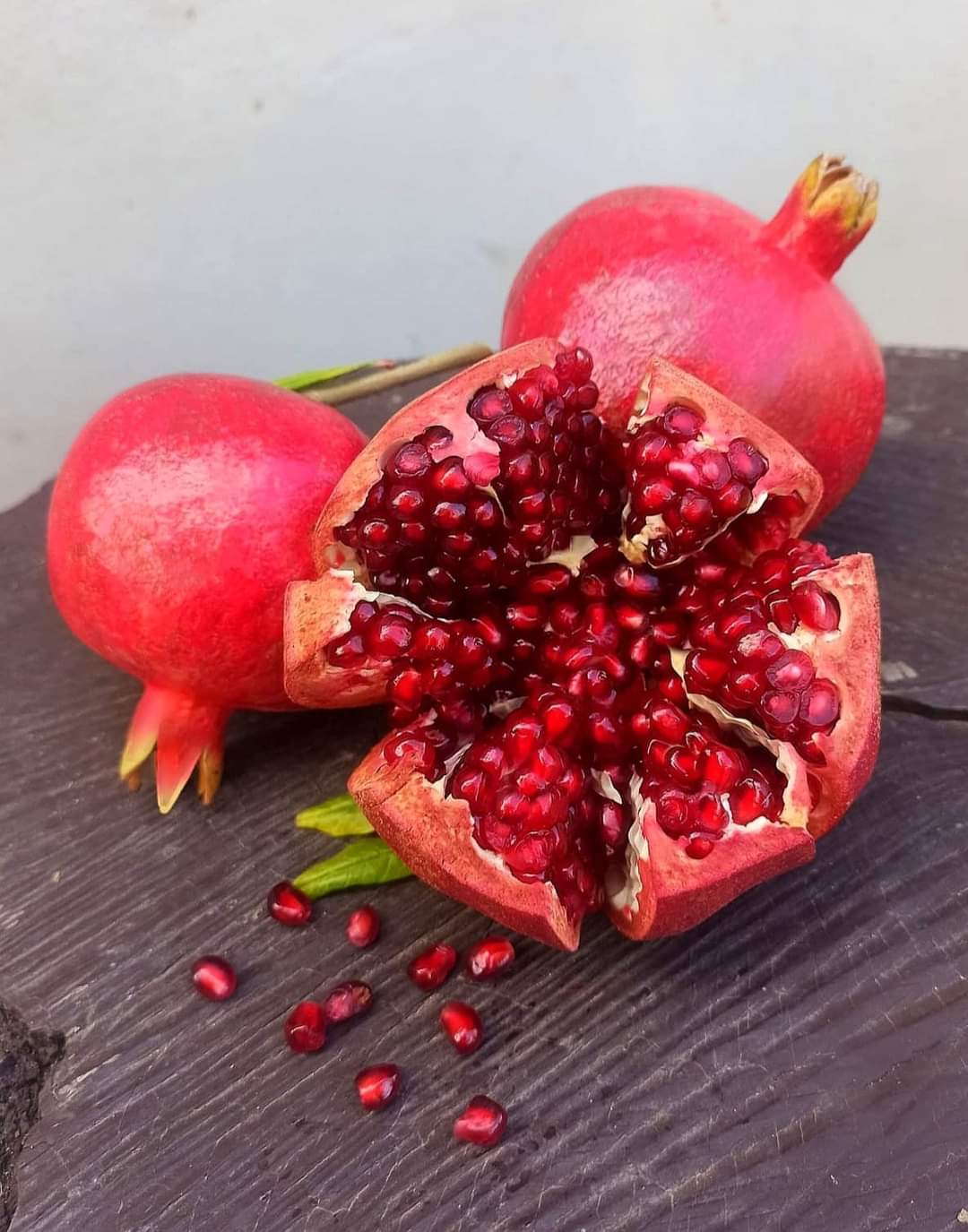
The pomegranate is the fruit of well-being
The term "pomegranate" comes from the Latin malum granatum or "pomegranate apple" that is "with many seeds" .
The properties of the pomegranate:
Thanks to the rich content of antioxidants, it helps in the prevention of cancer . It mainly contains flavonoids and ellagic acid .
Pomegranate juice is an aid in the prevention of cardiovascular diseases .
It has anti-inflammatory properties .
It soothes menopausal ailments , especially bone fragility.
It has antidiarrheal properties .
Gastro-protective properties.
Valori nutrizionali della melagrana
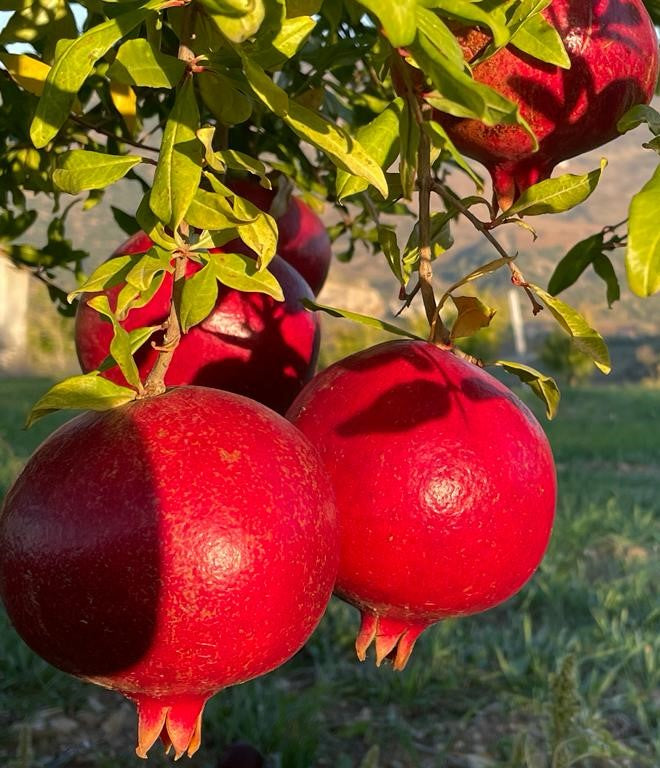
Keep the pomegranate
Pomegranates can be stored in a cool, dry place for 15-20 days . If you want to keep them longer, you can store them in the refrigerator (wrapped in recycled paper such as a bread bag) and they will keep for up to a month.
The arils can also be stored in the freezer in an airtight container.
Fresh juice, on the other hand, should be consumed within 3 days and placed in the fridge, or it can be frozen.
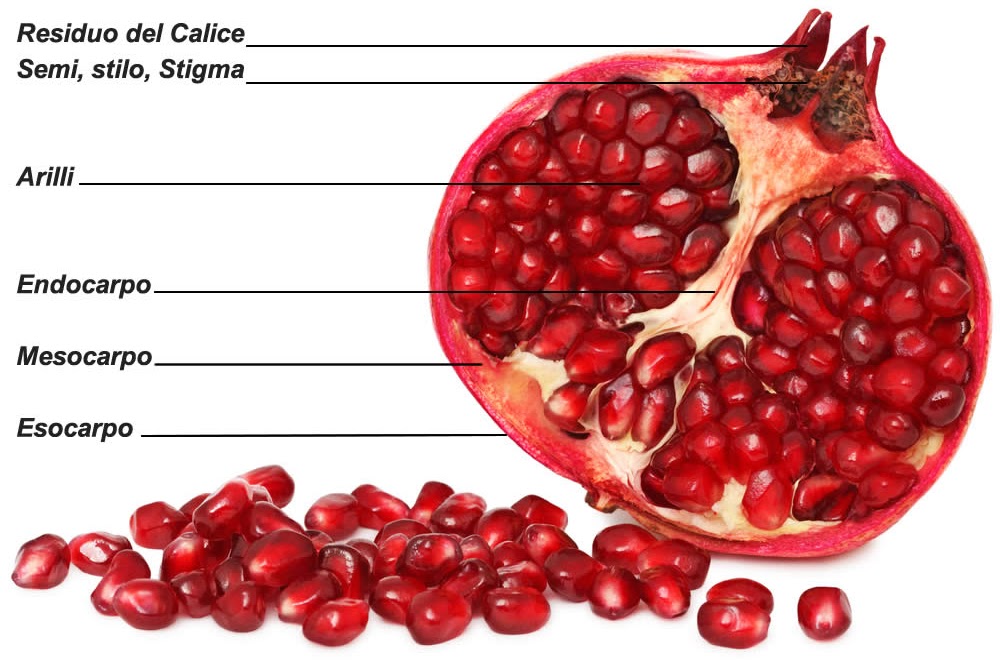
The structure of the pomegranate
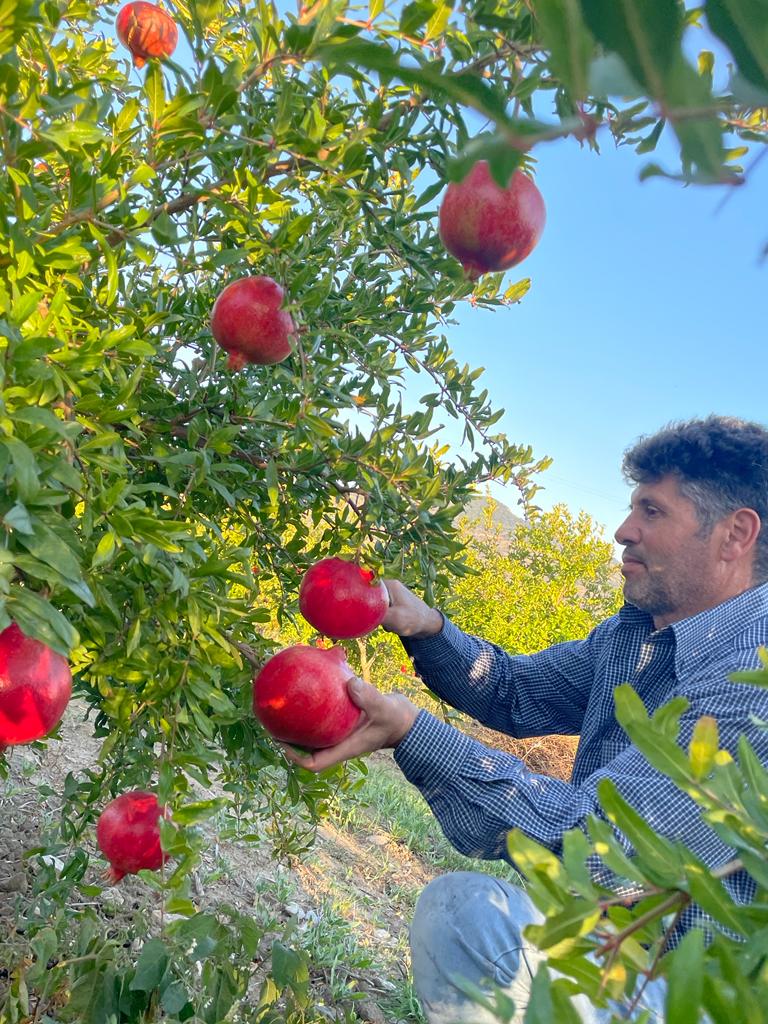
The symbology of the pomegranate
The pomegranate has always had a strong symbolic value. Often associated with different deities according to the eras, with Aphrodite at the time of the Greeks, Juno for the Romans, and with the Madonna of the Catholics starting from the Middle Ages, this fruit is evidently perfect for representing fertility and abundance.
In the Bible, the pomegranate is mentioned as one of the 7 fruits of the Promised Land. In the Jewish religion it represents correctness and honesty . In China it is customary to offer a pomegranate to the bride and groom to propitiate their offspring. However, the pomegranate also represents vital energy (for the Persians it was a symbol of invincibility) or of death (the Egyptians used it for example during funeral ceremonies).
The pomegranate between art and poetry
-
"That particular red that my heart and yours are made of. We can't pretend to explain it to those who weren't born from a pomegranate."
-----------------------------------
"A smile so fresh and vermilion that it makes one think of the opening of a pomegranate fruit"
Gabriele D'Annunzio
-----------------------------------
"Pomegranates are a promise of happiness, a colorful explosion of life"
- Pia Pera
-
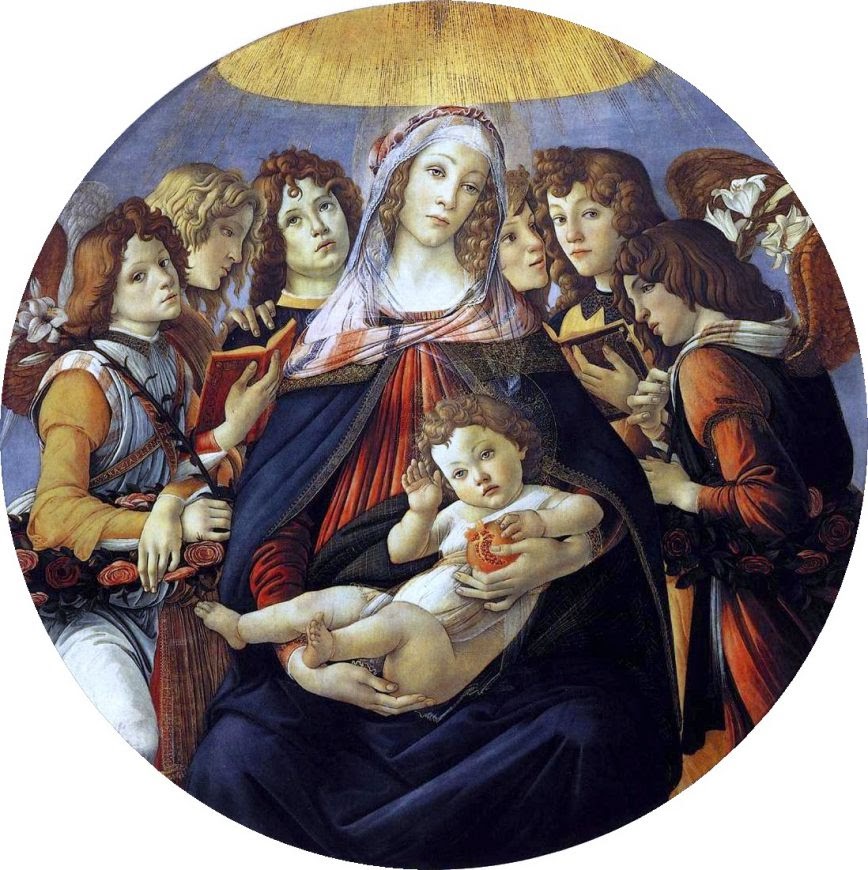
Madonna of the pomegranate, painting by Sandro Botticelli from 1847.
-
Early in the morning we will go to the vineyards;
we will see if the vine sprouts,
if the buds open,
if the pomegranates bloom:
there I will give you my love!
- Song of songs
-----------------------------------
It is heard from afar
the melodious song of a bird,
with loving words like pomegranate seeds
and every grain is a beautiful refrain.
-Hamid Misk
-
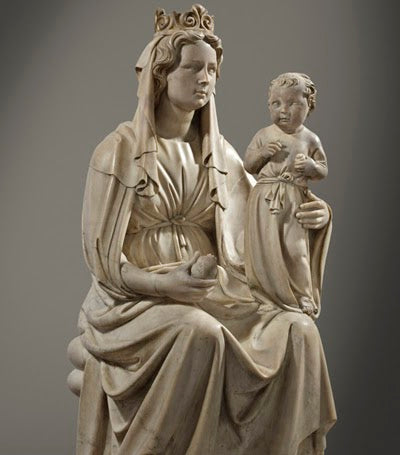
The Madonna of the pomegranate, marble sculpture by Jacopo della Quercia from 1403
-
The pomegranate is prehistory
of the blood we carry,
the idea of blood, closed
in hard and acid globules,
which has a vague shape
of heart and skull.
- Ode to the pomegranate by Federico Garcia Lorca
-----------------------------------
Of every pomegranate
every grain exists
all the time
of our amazement.
-Fabrizio Caramagna
-
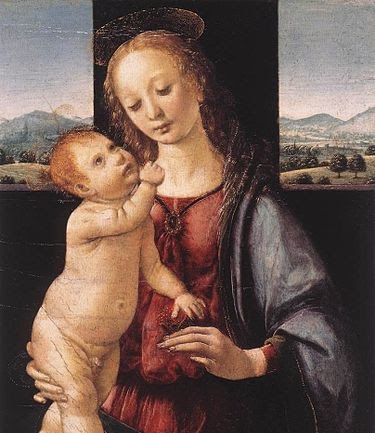
Madonna Dreyfus, generally attributed to Leonardo Da Vinci, dates from the second half of the 1400s.
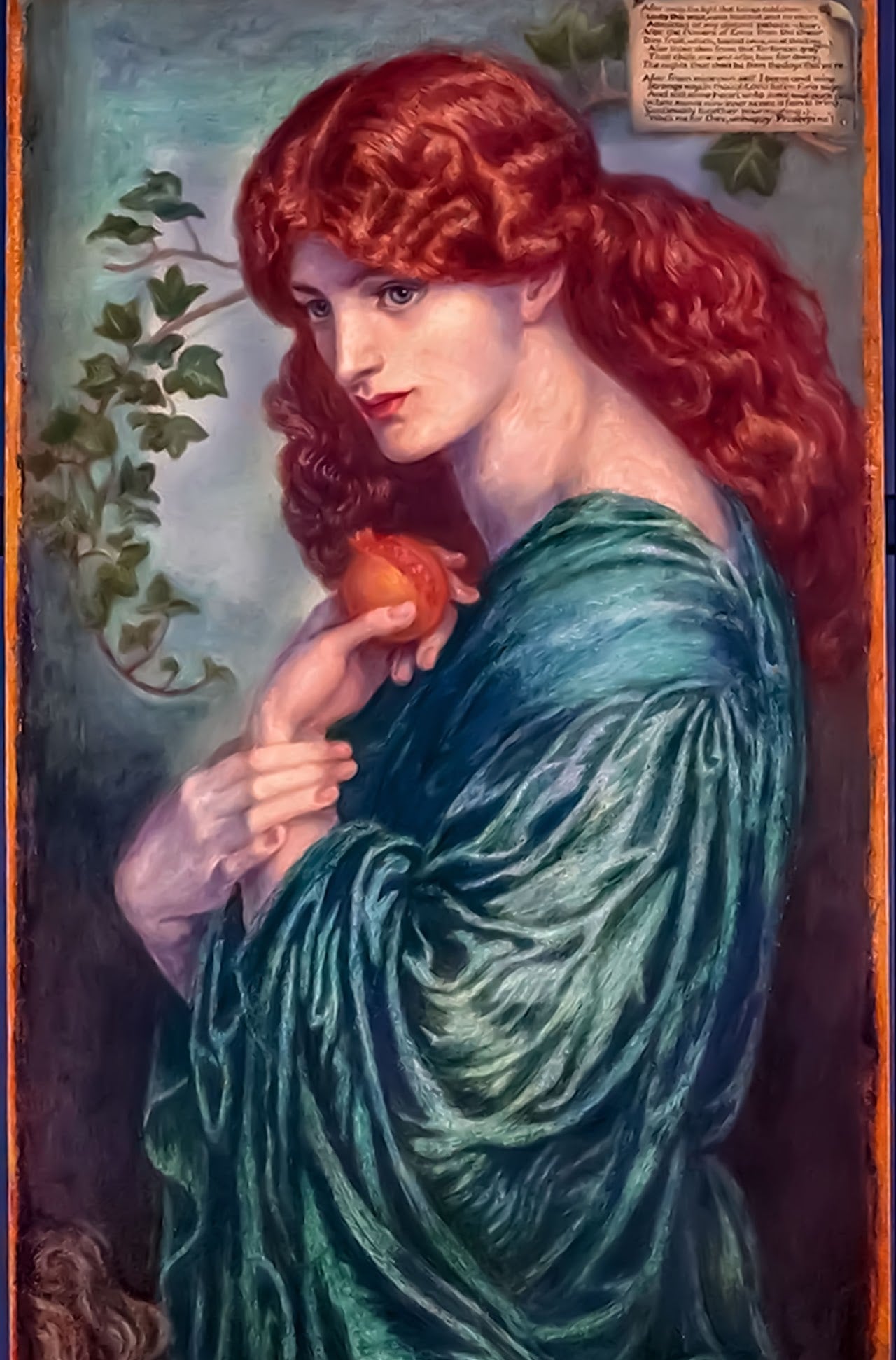
The pomegranate in the myth
A myth tells that the pomegranate was born from the blood of Dionysus who, still a child, was kidnapped by the Titans commissioned by Hera, tired of the constant betrayals of Zeus (the child was in fact the illegitimate son of Zeus). Poor Dionysus was torn to pieces and the first pomegranate tree would have been born from just a drop of his blood that fell to the ground.
The pomegranate is linked to the mythological figure of Persephone who, kidnapped by Hades, lord of the Underworld, is punished for having tasted 6 sour seeds of the pomegranate (forbidden fruit) and is forced to live two thirds of each year with her mother Demeter on earth and a third with Hades.
When she was happily in the company of Persephone, Demeter made nature flourish again and on earth it was spring-summer, when she returned to the Underworld, however, sad and alone she stripped the trees making autumn-winter appear. With this myth the Greeks explained the alternation of the seasons.
